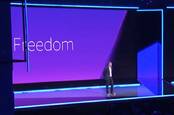This article is more than 1 year old
Banking software firm tiptoes off to the cloud with MariaDB after $2m Oracle licence shocker
Licence to float...
Financial services software specialist FNI has dodged a $2m licensing bullet by jumping off Oracle databases and lifting its MariaDB environment to the cloud.
The banking technology services company is moving its loan risk management system to MariaDB's DBaaS SkySQL, with a heritage in the open-source MySQL family, hosted on the Google Cloud Platform, a transition set to complete next month.
After starting as a DBA for FNI, Bryan Bancroft told us that the DBaaS concept is not a threat to the role per se but instead frees up some time for more high-value work.
About 40 or 50 per cent of my work beforehand was patching and maintenance
The FNI lead database administrator and architect told The Register: “About 40 or 50 per cent of my work beforehand was patching and maintenance, so [moving to DBaaS] has really cut down a lot of that overhead work by DBAs. Once we're actually in the cloud, it's really a shift to focusing on improving the database performance as opposed to just keeping the systems healthy.
"My plans post-transition? We have a lot of old setup work, stored procedures, and odd database designs that we really have slated for, and now have the time to address." FNI has already been running on MariaDB on-premises in virtual environments after it migrated away from Oracle because of what it saw as unreasonable licensing requirements.
The credit decision application, which is one of the products FNI sells to its banking clients, was created in Oracle on an on-premises RAC setup for high availability, running in Java, attached to front end web applications with database access.
Bancroft said: "The biggest issue came from virtualising on site. We are running databases on an [VMware] ESXi host. Even though we'd only provision a certain amount, Oracle was charging us for the underlying hardware that the databases are running on, which was causing skyrocketing costs as CPUs were replaced and upgraded over time and we started getting that extra cost per core."

We're free in 3... 2... 1! Amazon unhooks its last Oracle database, nothing breaks and life goes on
READ MOREThe problem in moving to a virtual environment with Oracle licensing was well documented at the time. For FNI, as costs per core hit $47,500, total licensing fees for the Oracle 11g database reached almost $2m, prompting it to look at its options, it told us.
The initial move to MariaDB saved 80 per cent of database costs, but it did come at a price. FNI's DBA team had to rewrite its automated jobs and backups, as well as enterprise data warehouse loads.
Bancroft said: "All this ingrained code that was sitting there for 15 years on Oracle that some people here have no idea what it's doing? What the hell is this actually doing? We had to look at that and say, 'OK, how do I turn this into something that's going to run on MariaDB?'"
About a year's worth of development work for a team of three or four DBAs, was a lot cheaper than continuing to pay the Oracle licences, he told us.
But the investment has now also paid dividends in smoothing the transition to the cloud, Bancroft said. "On our actual cloud transition, we're going from MariaDB to MariaDB, same version, which has simplified a lot [of work], other than having to run uploads of databases a couple times when we found kinks and small differences."
FNI started the transition to its cloud database in June, and is set to finish next month. As well as performance, which Bancroft said will help the company remain competitive, the DBA chief said MariaDB was easier to manage.
"In an established Oracle system, [it was] kind of like an insurmountable black box; there [were] a lot of things that just went wrong. And, of course, Oracle Support was never, helpful for solving any of our issues. And it was kind of just struggling to keep that running. MariaDB is running off of MySQL branch: it's understandable, it's manageable, it's not trying to hide things behind the scenes," Bancroft said.
We have asked Oracle to comment. ®
